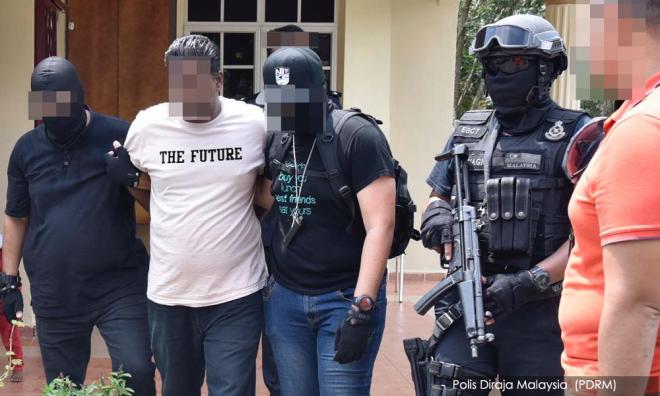
Do Malaysians still remember how Prime Minister Dr Mahathir Mohamad has repeatedly stressed that “New Malaysia” is strictly based on the rule of law?
This is apart from the Pakatan Harapan GE14 manifesto that promised to do away with detention without trial laws such as Security Offences (Special Measures) Act 2012 (Sosma), Prevention of Terrorism Act 2015 (Pota) and Prevention of Crime Act 1959 (Poca).
Recent police action is disturbing as it is in direct contradiction to both assertions. The police have arrested seven men including two assemblypersons under Sosma for allegedly “supporting, promoting, recruiting, funding and being in possession of items related to Sri Lanka based militant group Liberation Tigers of Tamil Eelam (LTTE).”
The Malacca state assemblyperson and his Negri Sembilan counterpart were detained for allegedly “supporting the ideology of LTTE, which had been classified as a terrorist group in Malaysia since 2014”.
Mahathir (photo) also said that he is satisfied with the explanation given by the police on the crackdown, stating "The police have briefed me. They (the police) have reasons to take action”.
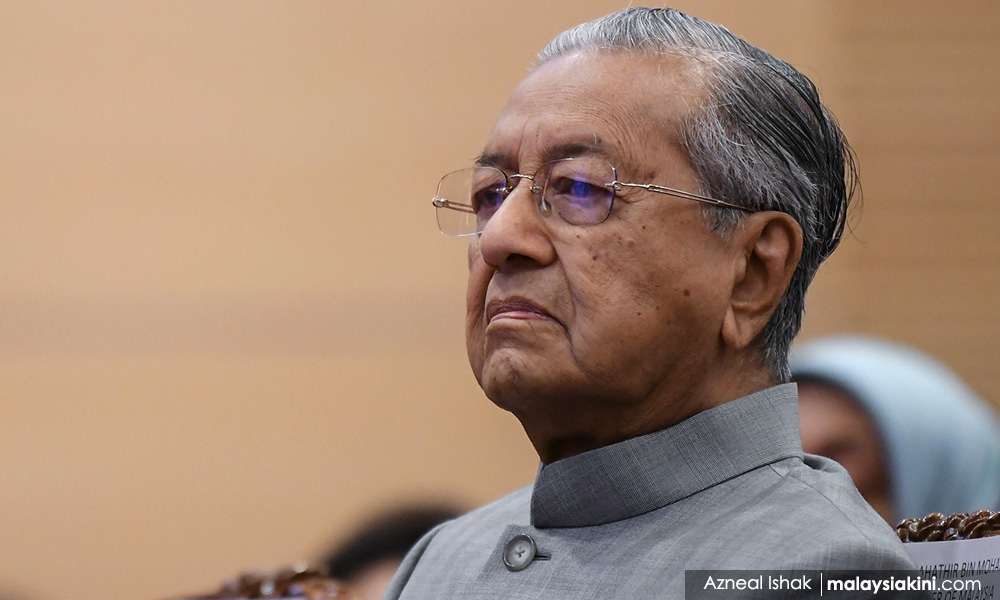
Before the last general election, Mahathir claimed that he was not responsible for Operasi Lalang in 1987 but that it was the IGP who had initiated the operation. Was he also satisfied with the explanation given by the IGP then?
Detention without trial goes against the rule of law
First, it must be pointed out that all laws that allow for detention without trial such as Sosma and the previous Internal Security Act (ISA) go against the rule of law.
They violate the principles of natural justice and human rights. The use of detention without trial raises massive doubts about the basis for the allegations, and it merely highlights the lack of evidence in incarcerating these victims.
The police have claimed that between 2001 and 2012, they have arrested 284 of Jemaah Islamiyah militant members, 512 Islamic State (IS) members since 2013 and 25 LTTE members since 2009.
Certainly, a terrorist in any society is a security risk if he or she carries arms and explosives or supports violence against the society of which they are members. Thus, although IS and LTTE are similarly categorised as “terrorist groups” by the government, it would be foolish not to differentiate them according to whether they are potential threats to Malaysian security.
Showing sympathy for a cause is not a crime
But when is it a crime for Malaysians or anyone else in the world to show sympathy for liberation struggles such as the LTTE or the Palestinians or the Rohingyas and others?
For years, Malaysians have supported the Palestinian struggle against Israeli occupation and this has been backed up by government official stands.
The Palestine Liberation Organisation (PLO) has been very focused on their opposition to Israeli/Zionist aggression. I don’t remember any case of Malaysians being arrested for allegedly “supporting, promoting, recruiting, funding and being in possession of items related to the PLO”.
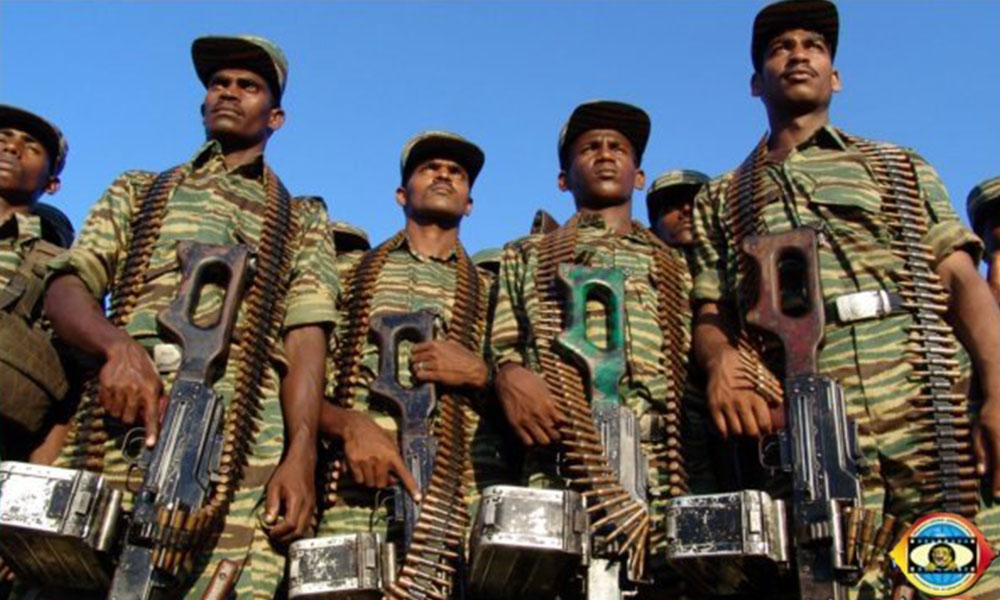
Likewise, the LTTE has very specific objectives, namely, to secure an independent state of Tamil Eelam in the north and east of Sri Lanka in response to the state discriminatory policies of successive Sri Lankan governments towards Tamils. It would be naive for anyone not to know that the LTTE has sympathisers in our country, especially among the Tamil community.
During the 1930s when Japan had invaded China and committed untold atrocities, Chinese Malaysians supported anti-Japanese activities in China including sending funds to the resistance.
Likewise, during the Spanish Civil War in the 30s, the anti-fascist resistance had sympathisers that included George Orwell and other intellectuals from all over the world who were incensed about Mussolini’s fascists.
In more recent times, the Irish Republican Army’s campaign against the British rule in the North of Ireland also had sympathisers and funders among politicians and big business personalities in the Irish American community.
Double standards vis-à-vis IS
Now, IS is a different kettle of fish because unlike LTTE, their objective of a caliphate through their world-wide terrorist activities using flexible, geographically diffuse network of autonomous cells, means that they do not have a specific country as their ultimate target.
Nevertheless, in 2018 Merdeka Centre in their survey found that support for global and regional terror groups such as Jemaah Islamiyah was highest in Malaysia at 18.1 percent. Support for the IS was also the highest.
At the same time, the government is reported to welcome its citizens who left the country to join the IS in Syria even while other countries are trying to disown their own by stripping them of citizenship.
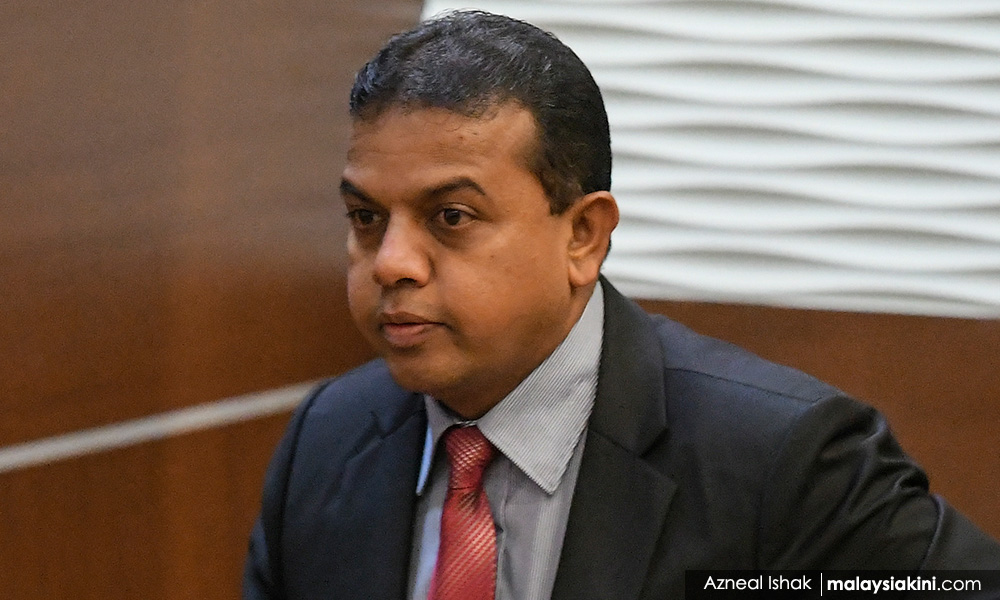
According to an Al Jazeera report, in which Ayob Khan Mydin Pitchay (photo), the head of Special Branch's Counter-Terrorism Division, was quoted, Malaysians who made the mistake of joining the IS may return provided they comply with enforcement checks and complete a one-month government-sanctioned rehabilitation programme.
Furthermore, while Ayob plans to use clerics and psychologists to evaluate these former IS fighters' ideology and psychological make-up, he added that they do not plan on detaining every single returnee.
We are told that while more than 100 Malaysians had joined the IS, there are currently 51 still in Syria, including 17 children, who according to Ayob himself, are still willing to fight for the global terror network's dying cause.
To date, 11 other former members are already back in Malaysia. Of these 11, eight men were charged in court and convicted. Two were children, aged three and five, and there was one woman who had undergone a rehabilitation programme and has now returned to her kampung.
On 10 March, then inspector-general of police, Mohamad Fuzi Harun, said that they have uncovered a plan by foreign militants to use Malaysia as a "safe haven", following the collapse of IS.
"We view seriously the infiltration of foreign terrorist fighters in the country due to the defeat of the IS in Iraq and Syria.
"These foreign terrorist fighters could also set up base here to attack another country, or by even launching attacks in Malaysia," Fuzi had said, adding that the militants plan to marry local women to get spousal visas to enable them to live in Malaysia or to remain in the country by using education facilities, or by being involved in business.
War on terror must abide by human rights
In 1994, the UN General Assembly’s Declaration on Measures to Eliminate International Terrorism, set out in its resolution 49/60, stated that terrorism includes “criminal acts intended or calculated to provoke a state of terror in the general public, a group of persons or particular persons for political purposes” and that such acts “are in any circumstances unjustifiable, whatever the considerations of a political, philosophical, ideological, racial, ethnic, religious or other nature that may be invoked to justify them.”
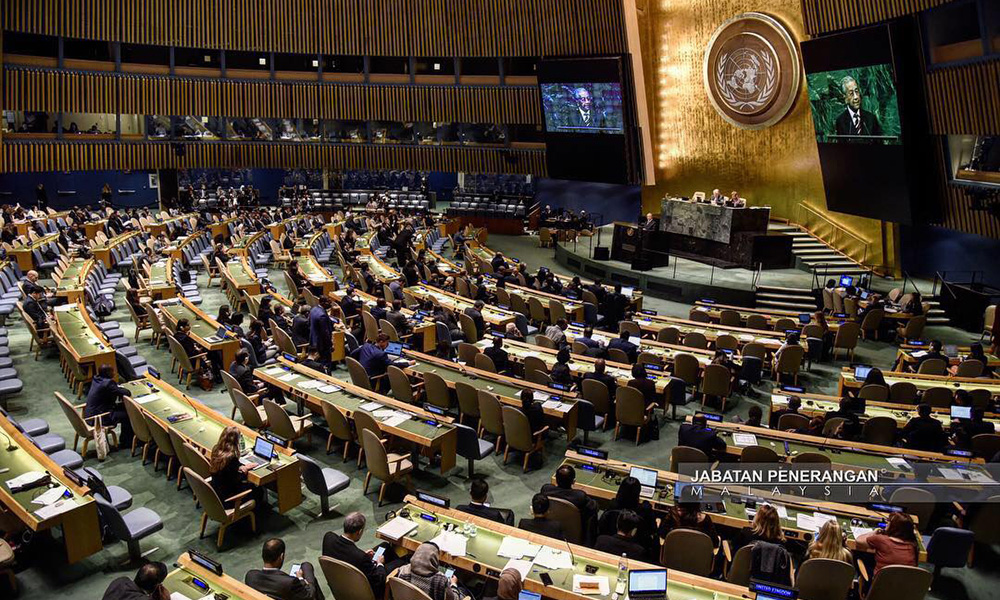
Nevertheless, respect for human rights and the rule of law remains the bedrock of the global fight against terrorism. This requires the development of national counter-terrorism strategies that seek to prevent acts of terrorism, prosecute those responsible for such criminal acts, and promote and protect human rights and the rule of law.
It implies measures to address the conditions conducive to the spread of terrorism, including the lack of rule of law and violations of human rights, ethnic, national and religious discrimination, political exclusion, and socio-economic marginalisation.
Most importantly, with all such allegations, there must be due process and the right to a fair trial for individuals suspected of terrorist activity.
The human rights protections for all persons charged with criminal offences, including terrorism-related crimes, included the right to be presumed innocent, the right to a hearing with due guarantees and within a reasonable time, by a competent, independent and impartial tribunal, and the right to have a conviction and sentence reviewed by a higher tribunal satisfying the same standards.
Suaram, therefore, calls on the Harapan government to immediately release the Malaysians who have been detained without trial under Sosma for alleged links to the LTTE.
We wish to remind the prime minister of his post-GE14 commitment to the rule of law and to abide by the Harapan's promise to do away with detention without trial laws such as Sosma, Poca and Pota.
KUA KIA SOONG is the adviser of Suaram. - Mkini



No comments:
Post a Comment
Note: Only a member of this blog may post a comment.